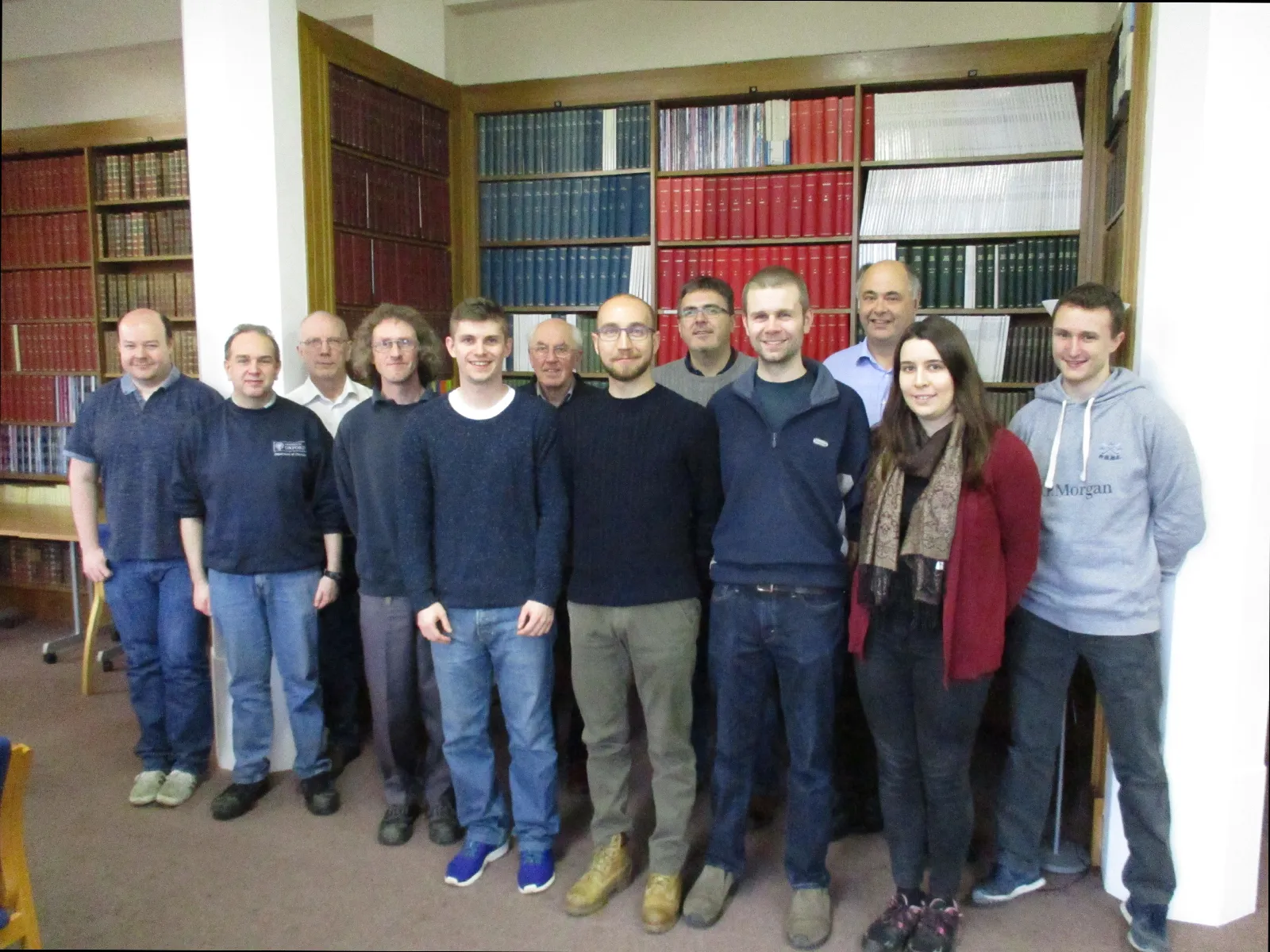The Molecular Flow Sensor Team
Prize
Analytical Science Horizon PrizesYear
2022
Citation
For the development of a molecular flow sensor for non-invasive breath analysis to provide measurements of respiratory disease and cardiac output.

Scientists based at the University of Oxford have developed a molecular flow sensor for lung function measurement.
The collaboration, between chemists, physiologists, computer modellers and clinicians, developed the instrument to study the behaviour of the human lung with unprecedented accuracy. Using a combination of optical, mechanical, signal processing and computational techniques, a small instrument called a Molecular Flow Sensor was constructed, which can make highly precise, non-invasive measurements of breath gases.
Designing the Molecular Flow Sensor has been really rewarding. To see the work carried out over many years develop into a real-world application with the potential to help many people shows the importance of this type of research.
Kevin Valentine
A novel device for lung function measurement
The team
Asma Alamoudi, D.Phil. student, University of Oxford (Physiology)
Dr Luca Ciaffoni, Post Doc, University of Oxford (Chemistry)
John Couper, Optics Engineer, University of Oxford (Chemistry)
Dr Beth Cummings, D.Phil. student, University of Oxford (Chemistry)
Matthew Frise, Clinician, Royal Berkshire Hospitals
Dr Chris Fullerton, Post Doc, University of Oxford (Physiology)
Dr Michelle Hamilton, Post Doc, University of Oxford (Chemistry)
Professor Gus Hancock, Professor of Chemistry, University of Oxford
Philip Hurst, Electronics, University of Oxford (Chemistry)
Snapper Magor-Elliott, D.Phil student, University of Oxford (Physiology)
Dr Stuart McKechnie, Clinician, Oxford University Hospitals
Dr James Mountain, D. Phil student, University of Oxford (Physiology)
Dr David O'Neill, Post Doc, University of Oxford (Physiology)
Professor Ian Pavord, Professor of Respiratory Medicine, Oxford University Hospitals
Dr Nayia Petousi, Clinician, Oxford University Hospitals
Dr Lorenzo Petralia, Post Doc, University of Oxford (Chemistry)
Dr Rob Peverall, Post Doc, University of Oxford (Chemistry)
Tim Pragnall, Computation, University of Oxford (Physiology)
Jennifer Redmond, D. Phil Student, University of Oxford (Chemistry)
Dr Graham Richmond, Post Doc, University of Oxford (Chemistry)
Professor Grant Ritchie, Professor of Chemistry, University of Oxford
Professor Peter Robbins, Professor of Physiology, University of Oxford
Dominic Sandhu, D.Phil student, University of Oxford (Physiology)
Peter Santer, D.Phil student, University of Oxford (Physiology)
Akshay Shah, Clinician, Oxford University Hospitals
Dr Nick Smith, Post Doc, University of Oxford (Chemistry)
Dr Nick Talbot, Clinician, Oxford University Hospitals
Kevin Valentine, Head of Electronics, University of Oxford (Chemistry)
Professor Jonathan Whiteley, Professor of Computational Biology, University of Oxford
Haopeng Xu, D. Phil student, University of Oxford (Physiology)
Q & A with The Molecular Flow Sensor Team
Dr Chris Fullerton: The team spans several disciplines. Members are chemists, physiologists, experts in optics and electronics and medical doctors. Finding ways to communicate and collaborate effectively when we all come from such different backgrounds was challenging, but essential to making this project successful.
Dr Lorenzo Petralia: I find working in such a multidisciplinary team rewarding and the key to tackling cross-cutting research, as problem solving and creativity are boosted by the sheer variety of know-how. Plus, given the wide range of research backgrounds of the various team members, you can be almost be certain to learn something new on a daily basis from one of your colleagues.
Professor Peter Robbins: The technology provides a step change away from simply monitoring the concentrations of the components of the respired gas to a position where we know the molar flow rates of each gas in a highly precise and highly time-resolved way. In turn, this allows us to use conservation of mass to estimate a number of important physiological parameters relating to patients. This is simply not possible if all one knows is airway concentrations.
Professor Peter Robbins: It provides a platform technology for use in medicine, and has potential applications in respiratory medicine, in urgent and in critical care medicine.
Dr Chris Fullerton: The potential for early diagnosis of respiratory diseases like Chronic Obstructive Pulmonary Disease before they become irreversible is very exciting.
Dr Nick Smith: The driving force for this project is the clinical application of this technology. Breath-by-breath oxygen consumptions, cardiac outputs, and parameters reflecting lung inhomogeneity are obtainable in a non-invasive way using this technology. The key objective is to prove the clinical usefulness of these physiological parameters, ultimately enabling clinicians to improve patient outcomes.
Professor Gus Hancock: It already is. My personal hope is that it will be able to be used to monitor cardiac output in anaesthetised patients routinely and in a non-invasive fashion.
Kevin Valentine: Collaboration in chemistry is very important. Many techniques and skills used by one branch of chemistry can be adopted by different branches to improve their results. Lack of skills and knowledge can often hold back research.
Professor Grant Ritchie: Whatever career you choose, do it because you are passionate about it and enjoy it! Chemistry is such a varied subject that you are almost guaranteed to find multiple areas of inspiration. However, while intellect and practical talent are of course very important, it really is a case of 1% inspiration and 99% perspiration – you need to work hard and to do this for a prolonged period of time requires you to have an underlying passion for the subject.
Our winners
We are recognising individuals, collaborations and teams for their exceptional achievements in advancing the chemical sciences. Explore our prize winners, and discover and share their stories
Thank you to everybody who took the time to make a nomination this year, and to all of our volunteers on our judging panels.
